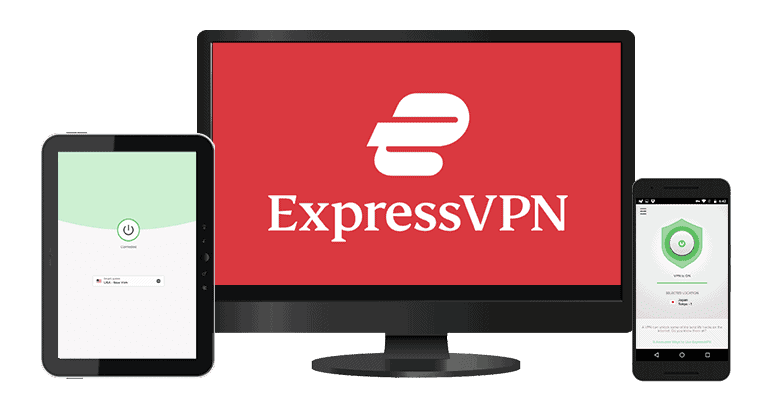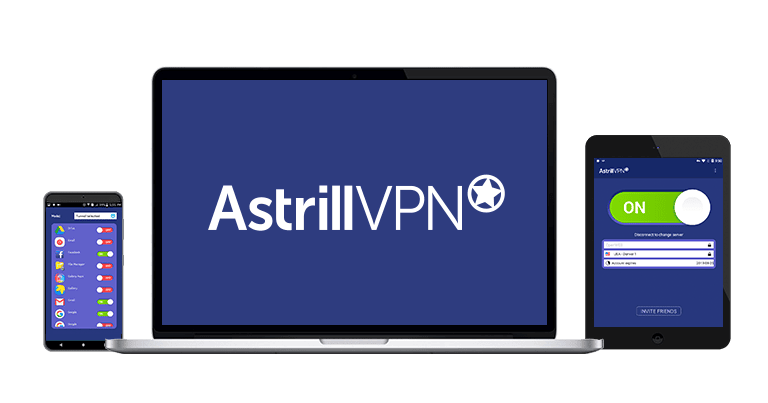
Updated on: December 20, 2024
Only 4 Steps (Quick + Easy) to Safely Use a VPN in Russia & China in 2024:
- Choose a VPN that works well in Russia and China. I recommend ExpressVPN, which can bypass censorship in Russia and China with its obfuscation tool while maintaining stable connections and top speeds. Also, governments and ISPs can’t see what you’re doing online when you’re connected to it.
- Download and install a VPN. Set up the VPN before arriving in Russia or China, as both countries block most VPN sites. You can find the app on the provider’s website or app store or contact support if you’re already in these countries.
- Enable the obfuscation tool. You must turn on obfuscation to get around VPN blocks in China and Russia. How you do this depends on the VPN you’re using. ExpressVPN does it automatically.
- Connect to a VPN server. Select a server. Once connected, you can freely browse the open internet from China and Russia.
To safely use a VPN in China and Russia, you need to pick a quality VPN that works in each country. Government-approved VPNs in these countries aren’t safe — they see, store, and share your online activities with authorities. Even worse, they don’t provide access to blocked sites or services.
The VPNs I recommend for China and Russia use obfuscation technology that disguises VPN traffic as regular internet traffic to evade detection. They also have lots of privacy features that allow you to browse the free and open web without worrying about government surveillance.
My favorite is ExpressVPN, which includes easy-to-use obfuscation and maintains blazing-fast speeds. In the article below, I also explain how to set up and use a VPN in China and Russia and how to download and set up a VPN in each of these restricted countries.
Editor’s Note: VPN connections in China can be unreliable due to strict regulations. ExpressVPN is generally stable and offers a 30-day money-back guarantee for first-time users to try it risk-free. Using a non-approved VPN in Russia and China may be illegal. So far, I haven’t found any cases where the Chinese or the Russian government has punished an individual for using one. However, it’s important to understand the risks and follow local laws.
Editors' Note: ExpressVPN and this site are in the same ownership group.
How to Safely Use a VPN in Russia & China on Any Device
1. Choose a VPN that’s secure and works in Russia & China.
ExpressVPN is the best VPN for bypassing government censorship in Russia and China thanks to advanced obfuscation. It also makes your traffic unreadable to the government and your ISP and doesn’t keep any data on your online activities, so it’s impossible for them to share anything with the government.
While any VPN connection can be unstable due to heavy restrictions in these countries, ExpressVPN’s money-back guarantee means you can test it for yourself risk-free.

2. Download the VPN to your device in & outside China & Russia.
If you’re not yet in China or Russia, you can find the VPN app on the provider’s official website or your device’s app store.
If you’re already in Russia or China, you’ll have to first email the provider’s customer support team and request a mirror (alternative) link that’ll take you to the website. This is because both China and Russia ban most VPN websites (including ExpressVPN) and have similarly removed the majority of VPN apps from app stores like Apple’s App Store and Google Play store there.

3. Turn on obfuscation & connect to the VPN.

Launch the VPN app, turn on the VPN’s obfuscation feature, and then select a server to connect to. Your internet traffic is now encrypted, your IP address is hidden, and the government can’t tell you’re using a VPN. In Russia, you may have to use a Russia-sanctioned VPN (like Kaspersky) to access the VPN for the first time.
Best VPNs for Russia & China in 2024
Quick summary of the best VPNs for Russia & China in 2024:
- 🥇1. ExpressVPN — Best overall VPN for Russia and China (secure and with fast speeds).
- 🥈2. Astrill VPN — Has proprietary protocols for safe VPN use in Russia and China.
- 🥉3. VyprVPN — Great VPN that periodically changes your IP address for extra privacy.
🥇1. ExpressVPN — Best Overall VPN for Russia & China in 2024
ExpressVPN is the top VPN for both Russia and China. Its obfuscation gets around DPI technology and firewalls in both countries and makes your VPN traffic appear like regular internet traffic to your ISPs and the government, so neither can tell you’re using a VPN.
I like how it turns on obfuscation automatically when it detects VPN blocks on all servers and protocols, which gives you options if one method doesn’t work. Additionally, unlike most obfuscation tools, ExpressVPN’s causes minimal slowdowns.

This VPN protects your online activity from surveillance in China and Russia. It doesn’t store any of your data thanks to a strict no-logs policy (that’s been independently audited and verified multiple times), and it doesn’t have any physical servers in either country, so neither Russia nor China can seize them. Plus, it has full leak protection, regularly refreshes IP addresses, and features ShuffleIP, which changes your IP every time you load a new webpage or open an app, enhancing anonymity.
ExpressVPN’s plans start at $4.99 / month, and it backs all purchases with a 30-day money-back guarantee.
Read our full ExpressVPN review
🥈2. Astrill VPN — 2 Proprietary Protocols for Safe VPN Use
Astrill VPN provides obfuscation via its proprietary StealthVPN and OpenWeb protocols. Each method bypasses DPI and firewall restrictions in Russia and China by hiding VPN traffic. The 2 protocols also give you additional flexibility — if one protocol stops working, you can try the other.
Astrill protects you from government surveillance with a no-logs policy, full leak protection, and an App Guard feature, which lets you shut down only specific apps if your VPN connection drops. However, I’d like to see Astrill run an independent audit of its no-logs policy, like ExpressVPN, to verify it doesn’t keep any user data.

I also like its Smart Mode, which lets you route restricted traffic through your VPN server while browsing local sites with a regional IP. This helps prevent your IP from getting blocked, and it works without turning off the VPN. This is why it’s one of the top VPNs for China.
Astrill VPN’s plans start at $12.50 / month, which is steeper than many of its competitors. While it doesn’t offer a money-back guarantee, there is a 7-day free trial.
Read our full Astrill VPN review
🥉3. VyprVPN — Periodically Changes Your IP Address for Extra Privacy
VyprVPN hides your VPN use in Russia and China with its Chameleon protocol. It does this by disguising OpenVPN packet metadata, which DPI techniques analyze to identify and block VPN traffic. When you use the Chameleon protocol, VyprVPN also activates Smart IP, which periodically changes your IP address without dropping your connection (ExpressVPN has a similar feature).

This provider has an independently audited no-logs policy. However, unlike ExpressVPN and Astrill VPN, VyprVPN doesn’t come with IPv6 or WebRTC leak protection. This means you’ll need to manually disable both to be completely safe. That said, I ran leak tests on 10+ servers and never experienced any leaks.
VyprVPN’s plans start at $3.00 / month, and all subscriptions come with a 30-day money-back guarantee.
Quick Comparison Table
Testing Methodology: Comparison & Ranking Criteria
To create this list of the best VPNs for Russia and China, I followed our proven testing methodology. Key factors I looked for include: a good obfuscation feature, strong privacy and security, and multiple viable payment methods. But I also paid attention to other things, like the provider’s speeds, ease of use, and more. Learn more about the criteria I used to rank and compare the VPNs on my list below:
- I made sure every VPN on my list works in Russia or China. I confirmed all of the VPNs on my list work in Russia with the help of a Russian colleague and verified they can work in China by speaking to each provider’s support team.
- I found VPNs with mirror sites. I looked for providers with mirror sites, which are duplicate websites that the Chinese and Russian governments haven’t blocked. You need these to download the VPN app if you’re already in China and Russia.
- I selected VPNs with viable payment methods. This is especially important in Russia, where many of the usual payment options, such as Visa, Mastercard, and PayPal, don’t work.

- I picked VPNs with industry-standard VPN security features. All the VPNs I selected use bank-grade 256-bit AES encryption to protect your online activities in China and Russia from government surveillance and ISPs. Additionally, each VPN includes a kill switch that cuts your internet connection to prevent data leaks if the VPN drops.
- I looked for VPNs with fast speeds. Using a VPN while obfuscating your traffic to evade VPN blocks in Russia and China can reduce your connection speeds significantly. That’s why I looked for VPNs that maintain fast speeds for browsing, streaming, torrenting, and gaming even with obfuscation on. ExpressVPN’s obfuscation tool is one of the best because it barely causes any slowdowns.

- I chose VPNs that can access blocked sites and apps. Every VPN on my list can access popular streaming sites, like Netflix, as well as services like Facebook, X, WhatsApp, YouTube, and Gmail, most of which are inaccessible in China and Russia.
- I tested each VPN’s device compatibility. I only recommend VPNs with easy-to-use apps for all major platforms, including iOS, Android, Windows, and macOS.
- I evaluated each VPN’s overall value. All of the VPNs I recommend have affordable plans, feature-rich apps, and either offer a free trial or back plans with a money-back guarantee.
How to Download & Set Up a VPN in Russia & China
Getting a VPN up and running in Russia and China is pretty straightforward — the same as downloading and setting up a VPN in any other country with a couple of extra steps. Still, it should only take about 5 minutes.
Here’s a detailed guide:
- Request a mirror link from the VPN provider. Most VPNs’ official websites are blocked in Russia and China, so you’ll need to email the provider’s support team and ask for a mirror link. If you’re not in Russia or China yet, you can visit the official website directly. Once you’re on the website landing page, click on the button to get the VPN.

- Select a plan. Choose whichever plan works best for you.

- Enter your payment details. VPNs usually accept a variety of payment methods, including credit/debit cards, PayPal, and cryptocurrencies. You may also be asked to create your account during this step, so make sure you provide a valid email address.

- Download and install the VPN app. After you subscribe to the VPN, you’ll redirected to the provider’s download page, where you can get the right app for your device. Run the installer and then follow the on-screen instructions provided by the installation wizard.

- Open the VPN app and log into your account. Depending on the VPN, you may be required to enter a password, use an activation code, or click on a sign-in link sent to you by the provider.

- Set up the VPN on your other devices. Go back to the VPN’s official website and download any other apps that you need. ExpressVPN has apps for iOS, Android, Windows, macOS, and more.

- Connect to a VPN server. Launch the VPN app on your device, turn on the provider’s obfuscation feature, select a server location from the server list, and click on the connect/power button. That’s it! Your internet traffic in Russia or China is now protected by a VPN.

- For Russia only: Download a helper VPN. In Russia, you may experience difficulties accessing the VPN app if your ISP is blocking it. In that case, you’ll need to install a government-approved VPN to get around the block. Kaspersky VPN is the best choice for a helper VPN because it’s free.

- Connect to a server outside of Russia with the helper VPN. This may take a few seconds.

- Launch your primary VPN app again. You’ll no longer get any error messages when accessing your primary VPN app, even if you don’t use the helper VPN in the future.

VPN Not Working in Russia or China? Try These Troubleshooting Tips
Wait for the VPN to Establish a Connection

In Russia and China, it can take longer for a VPN to connect to a server, especially if you have slow speeds or are connecting to a distant server. I recommend waiting up to a minute to see if the VPN successfully connects.
Make Sure Obfuscation Is Enabled

Obfuscation helps you avoid VPN blocks by disguising your VPN traffic as regular internet traffic, so if you don’t have obfuscation enabled, your VPN won’t work.
Every VPN’s obfuscation feature works differently. ExpressVPN’s obfuscation works automatically when you’re using the recommended Automatic protocol. For other VPNs, you may have to go into the settings menu to turn on obfuscation manually.
Use a Recommended Server & Try a New IP

Some VPNs have special servers that work better in restrictive countries like Russia and China. Check the provider’s official website or contact customer support for recommended server locations.
If the IP address that’s assigned to you has been blocked by the government, disconnecting and reconnecting to the same location will get you a new IP address.
Try TCP Port 443

Go to the VPN’s settings menu, change the VPN protocol to OpenVPN TCP, and the port to 443. TCP port 443 is used for a lot of essential services, like email and banking, so it’s more difficult for censors to block it.
Clear Your Cache & Cookies

Some websites can detect your real location by using your cache and cookies, so try clearing these in your browser’s settings, and then try the VPN again.
Turn on the VPN’s Kill Switch & Check Its Leak Protection Settings

Some VPNs may not have their kill switch or DNS/IPv6 protections enabled by default. It’s also possible that they were turned off by accident. Having these features on is important. A kill switch prevents data leaifhat your VPN drops unexpectedly. DNS leaks can expose the websites or apps you’re using to the government. And IPv6 leaks can expose your real IP address or location.
Contact Customer Support

If none of the other tips resolve your problem, you can try reaching out to customer support. They may be able to better address your specific situation. If the VPN’s website is blocked and you can’t access their live chat or ticketing system, you can contact them via email.
Frequently Asked Questions
Are VPNs legal in Russia and China?
VPNs exist in a legal gray area in both China and Russia. Technically, only government-authorized VPNs are legal. However, enforcement is inconsistent, and neither government goes after individuals — they mainly target businesses or people selling unauthorized VPN services.
Authorized VPNs aren’t safe because they may share user data with the government and are required to comply with censorship policies, so people in both countries use VPNs to bypass government restrictions. Nonetheless, it’s important to understand the risks and to exercise caution when using a VPN in either country.
Is there a good free VPN for Russia and China?
No, it’s highly unlikely that a free VPN will work in either country. Both governments use sophisticated VPN detection technology to block VPN traffic, and only a few top VPNs are capable of bypassing these restrictions thanks to their excellent obfuscation tools and the fact that they refresh their IP addresses constantly.
How do I pay for a VPN in Russia?
While many global payment processors, like Visa and Mastercard, as well as international companies, like PayPal and Stripe, have suspended operations in Russia, all of the VPNs on my list support alternate payment methods that still work, including cryptocurrencies, YooMoney, and UnionPay.
How do I get a VPN to work in Russia and China?
Getting a VPN to work in Russia and China is pretty simple:
- Get a VPN that’s good for bypassing government censorship. Most VPNs don’t work in these countries, but ExpressVPN is a reliable option. Just note that because of China’s government restrictions, there may be some connection issues. ExpressVPN offers a 30-day money-back guarantee for first-time users, too.
- Download and install the VPN. Run the setup file and follow the installation wizard’s instructions.
- Turn on obfuscation. This hides the fact that you’re using a VPN. ExpressVPN’s obfuscation feature works automatically when using the Automatic protocol.
- Connect to a VPN server. Choose a nearby or a recommended server for the best speeds.


